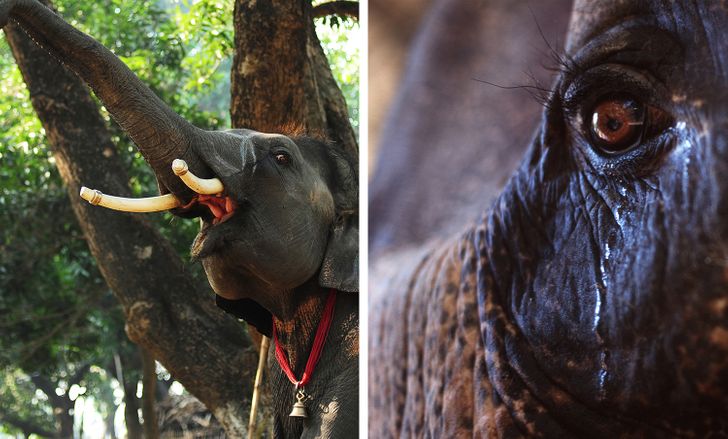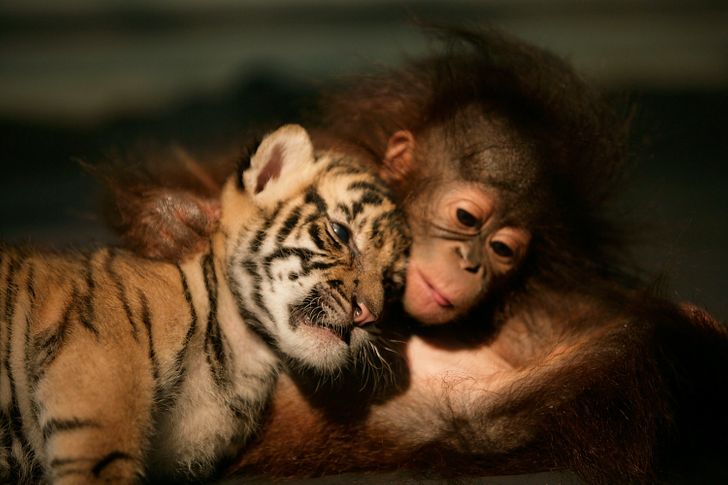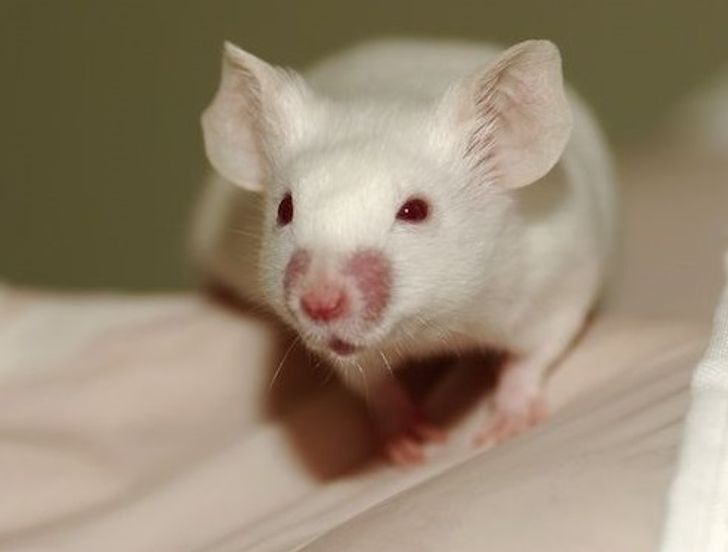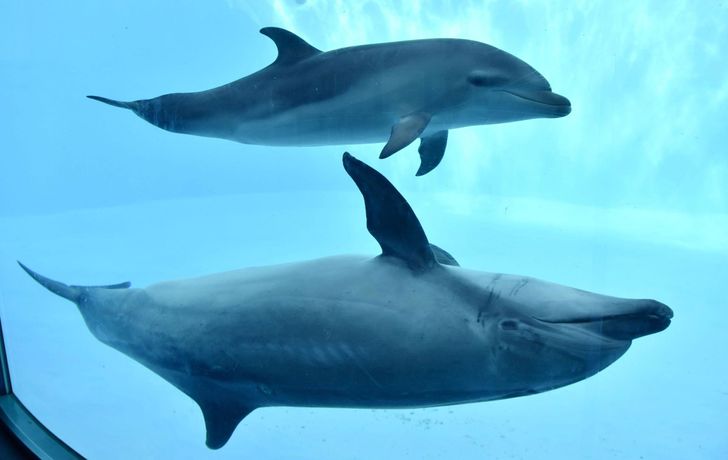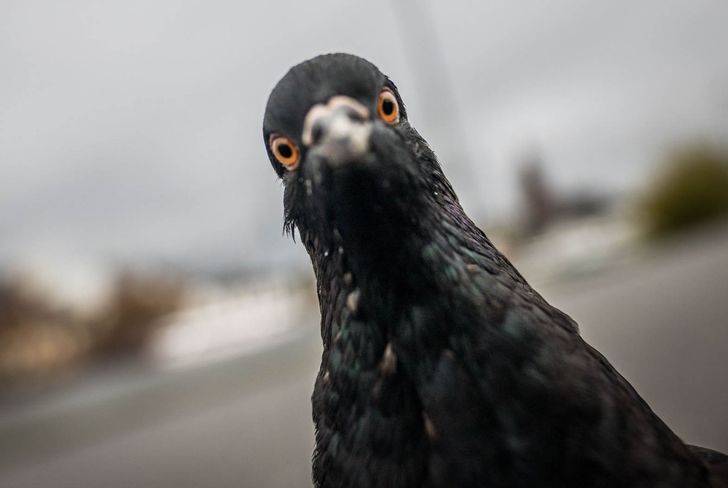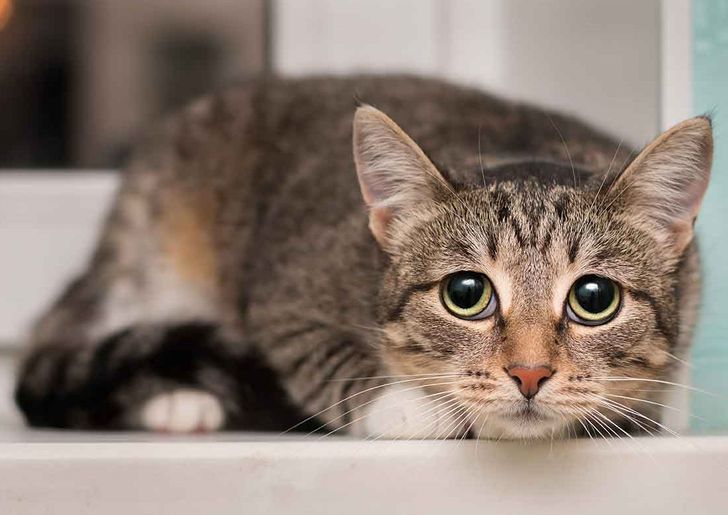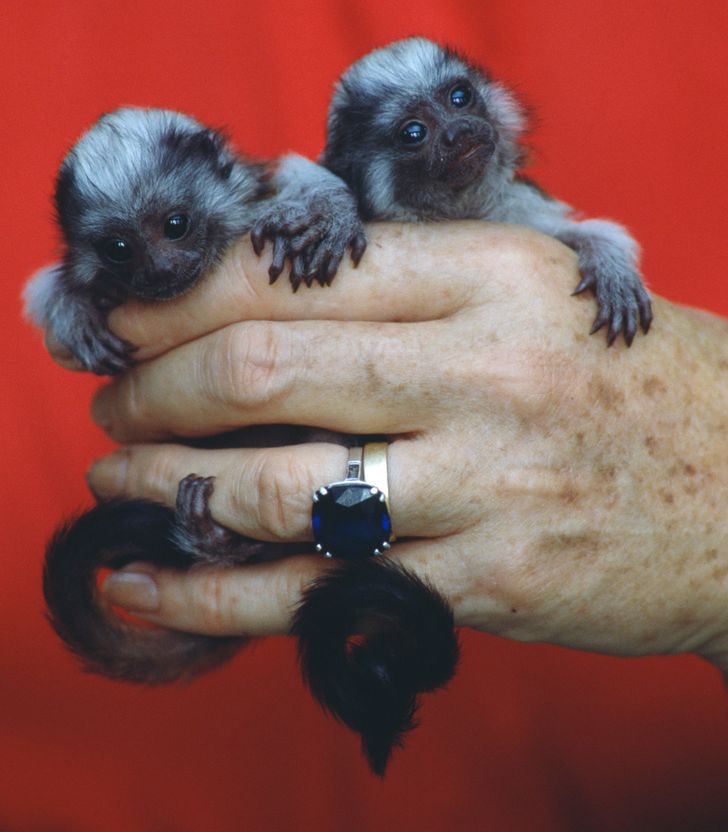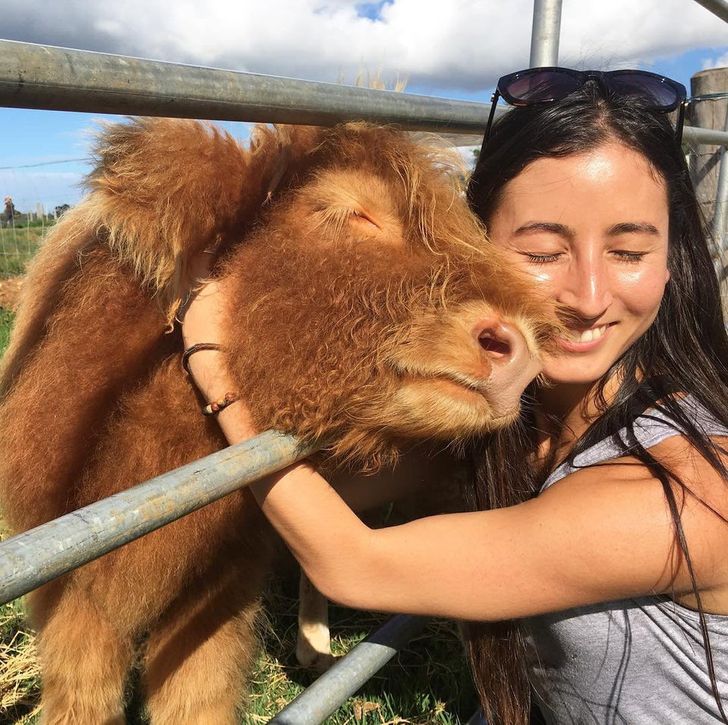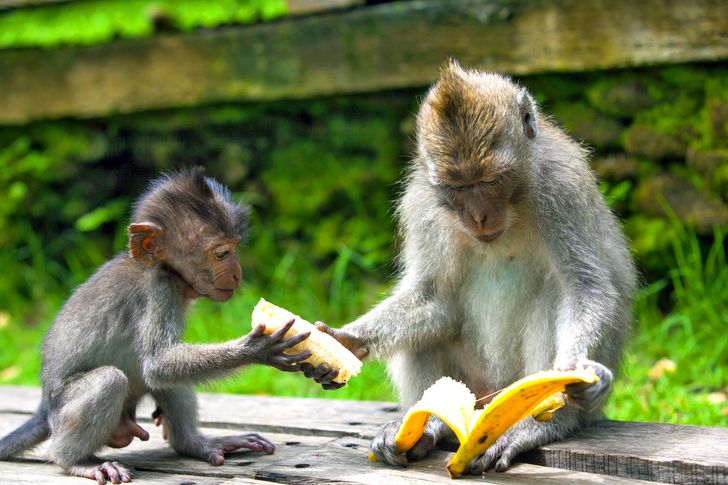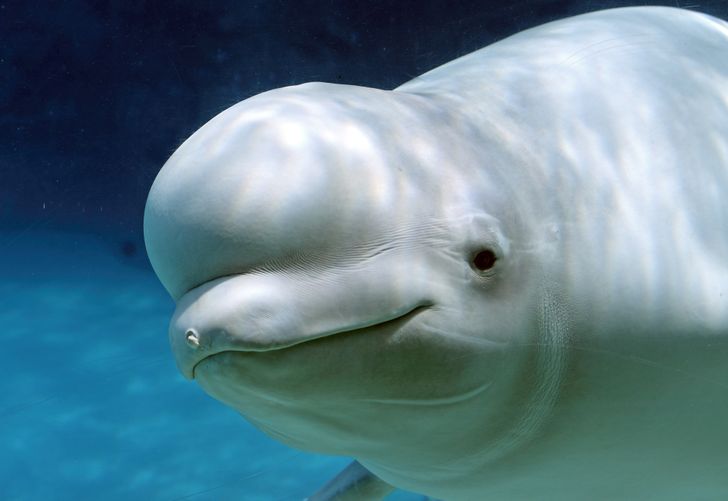I read before about the elephants. They're such sentimental animals. It was hard to believe at first they could grief their loved ones
11 Facts That Prove Animals Can Be Even More Humane Than We Are
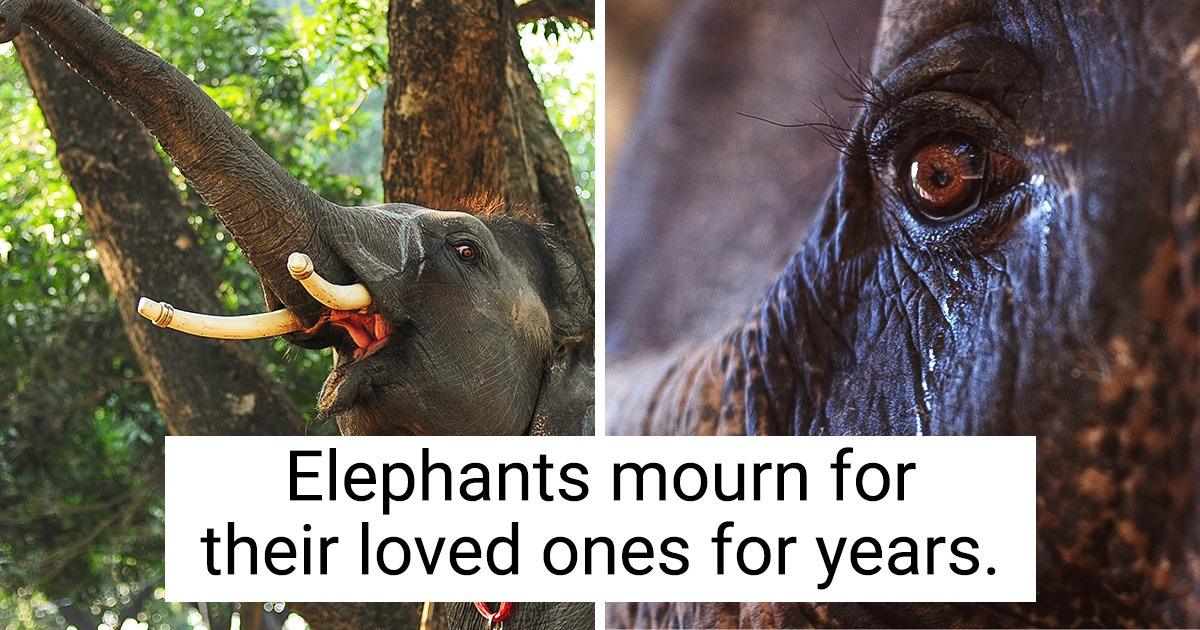
Mood-swings, sleep-talking, gaining weight under stress — these are just a few of many things that we thought were different about humans and animals. It turns out, we’re far from being unique, because many animals might experience feelings similar to humans.
We at Bright Side want to share 11 amazing facts that prove animals are just like us.
1. Elephants mourn for their loved ones for years.
The pics of a baby elephant that had just lost its mother, grieving over her body, shook the whole world. According to researchers’ observations, elephants can go through a massive amount of stress when losing loved ones and might mourn them even after several months. If elephants come near the place of their loved one’s death, they might stop and stay silent for a moment, and that can last for several minutes.
2. Chimpanzees feel empathy, researchers assume.
Studies have shown that chimpanzees show empathetic behavior — they might share and understand the emotions of others — but just like with humans, the level of compassion of each individual can be different. According to research published in the Nature Communications journal, after a conflict, chimpanzees may impulsively come and comfort the distressed parties of the fight.
3. Mice can have dozens of facial expressions.
Mice might express emotions in a way that is similar to humans — according to scientists from McGill University, mice that are in pain have several facial expressions. Also, apparently mice can communicate their pain visually and read each other’s emotions.
4. Apparently, dolphins can sleep-talk.
Several dolphins at the French aquatic park Planète Sauvage were recorded mimicking whale noises while sleeping. According to French researchers, dolphins were only able to hear whale sounds during the daytime shows, so they were “saving” these sounds and reproducing them at night as a possible version of sleep-talking.
5. Pigeons can behave irrationally, just like humans.
As it turns out, pigeons might like gambling and sometimes can fall for riskier options, according to a study conducted at the University of Kentucky. These birds sometimes tend to stick to a more difficult task to get a snack, rather than switch to an easier task with the same reward — this behavior seems to be similar to humans, according to researchers.
6. Cats might also put on weight when they’re depressed.
One of the reasons that cats put on weight may be cases of stress, anxiety, and unhappiness — that is, a drastic change in weight may be connected to the emotional state of the animal. The same thing happens with humans. Nevertheless, if your cat has gained weight, it’s still better to visit a vet and check its health condition.
7. Tamarin monkeys might really like talking.
Apparently, tamarin monkeys seem to really enjoy communication. According to a study in the journal of Zoo Biology, they have a very complex system of whispers, squeaks, and creaks, and might even be the only animals that can whisper like humans.
8. Cows can experience mood swings too, researchers say.
The behavior of cows becomes less predictable once they’re grown up, scientists from the University of British Columbia say. As an example, some cows will explore a new environment, a new object, or a new human right away, but during other days they’ll stay standing on the same place during the whole test.
9. Dogs might enjoy music.
The assumption that dogs like music is not anything new — many owners see their dogs singing and even dancing along. A study conducted by the Scottish SPCA and the University of Glasgow showed that classical music might calm down and relax dogs, and reggae and rock can relieve stress and lower their heart rates. Researchers assume that it’s because this type of music has a rhythm similar to dogs’ heart rates.
10. Monkeys share like humans, scientists report.
Primatologists at Yerkes discovered new evidence that monkeys might not only collaborate to search for food, but they will also share the results of their efforts with others. They might do it for uncertain benefits, but, presumably, because of sensitivity to what others might want and need, and a sense of mutual support.
11. Beluga whales supposedly value culture and ancestral roots.
Studies have found that beluga whales tend to create complex societies, understand and appreciate culture (meaning information or behavior patterns that are shared within a group of animals), and also honor and value ancestors and family bonds. Along with the fact that whale calves stay with their mothers for over a year, it shows how similar people and whales are.
Do you know of any other facts about the human-like behavior of animals that we could add to this list? We’d be happy to hear from you in the comment section below!
Comments
The Tamarin monkeys are so cute. I didn't know they liked talking. Searching for videos of them doing it now! ?
Pretty interesting article. I don't know all these things, especially the cow swinging moods. Wow!
It's so weird to me that animals can be depressed or have mood swings, they don't really have any pressure on them because no one is expecting anything from them.. right?
I know dogs like to listen to the radio so they don't feel lonely, I wonder if this has anything to do with the music
Related Reads
18 Moments That Remind Us Kindness Takes Minutes but Stays Forever

I Refuse to Be Treated as Less Reliable Because I’m a Single Mom

14 Stories From Cleaners That Are Wilder Than Any Movie Script

I Refused to Work While My Mom Was Dying—HR Got Involved

17 Moments That Prove Even Small Kindness Can Be Powerful

10 Jaw-Dropping Moments When People Stumbled Upon Secrets They Weren’t Meant to See

10 Moments That Show Kindness Doing the Heavy Lifting

16 Moments That Teach Us to Stay Kind, Even When the World Turns Ugly

10+ Stories That Prove Quiet Kindness Is All Around Us, Even When No One Is Watching

12 Small Acts of Kindness That Quietly Changed Lives

12 Stepparents Who Kept Showing Up Even When They Weren’t Wanted

I Refused to Be Treated Like a Maid in My Own Home—So I Changed the Rules

